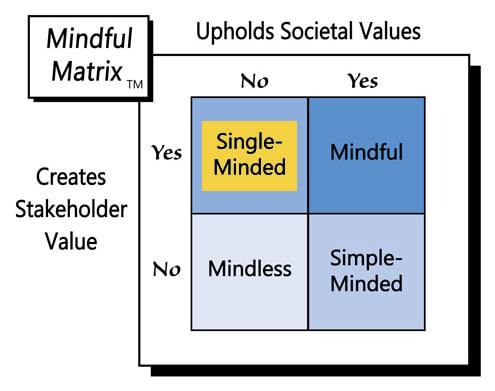During a recent marketing class, our discussion turned to e-cigarettes and one student, who was just a year or two removed from her own secondary education, mentioned that e-cigarette use is rampant in high school. I didn’t realize that lighting up electronically had become such an obsession for adolescents. A little online research, however, quickly supported the student’s claim.
According to the National Institute on Drug abuse, 16.2% of 12th graders used e-cigarettes in the past month, with the rate among boys being twice that of girls. The Food and Drug Administration (FDA) has reported that more than 2 million middle schoolers and high schoolers regularly used e-cigarettes in 2017, making e-cigarettes “the most commonly used form of tobacco among youth in the United States.”
Some describe an “epidemic” of e-cigarette use among adolescents. In fact, certain high schools, like Plainedge High School in New York, have installed special chemical detectors in bathrooms to sense changes in the air and notify administrators when students are “vaping.” All of this is happening despite the fact that FDA regulations prohibit minors from buying e-cigarettes in stores and online.
For those who find a way to purchase e-cigarettes, there are plenty of choices--over 460 different brands are competing for consumers. However, the biggest brand by far is Juul, which has about 72% of the market. Juul Labs, soared past $1 billion in sales after just its third year in business.
As might be expected, Juul has drawn special scrutiny when it comes to young people’s use of e-cigarettes. This past September, the FDA warned Juul and four smaller competitors (Vuse, MarkTen, blu, and Logic) that they had “60 days to convince the agency that they have adequate plans to stop kids from vaping with their products.” If Juul and the others can’t show how they’ll do a better job keeping minors from vaping, they will need to cease selling.
When e-cigarettes first hit the market in 2004, there was a sense of optimism: ‘Here’s a safer way for smokers to satisfy that desire and hopefully kick the habit entirely.’ So, what happened to that prediction, and why are so many teens, most of whom never smoked before, such a significant part of the e-cigarette market?
According to the National Institute on Drug Abuse, “e-cigarettes are not an FDA-approved quit aid, and there is no conclusive scientific evidence on the effectiveness of e-cigarettes for long-term smoking cessation.” In fact, for teens, the relationship between e-cigarettes and cigarettes seems to be the opposite.
Of teenagers who use e-cigarettes 30.7% start smoking regular cigarettes within 6 months, compared to just 8.1% of those not using e-cigarettes. Similarly, a study found that “students who had used e-cigarettes by the time they started 9th grade were more likely than others to start smoking cigarettes and other smokable tobacco products within the next year.”
Plaintiffs have brought several lawsuits against Juul specifically, alleging that its products’ high levels of nicotine caused the users to become addicted. Ironically, some of them choose to use JUUL because they thought it would help them quit smoking.
E-cigarettes are addicting because, just like traditional cigarettes, most contain nicotine. Juul’s products’ have especially high levels of the chemical: A single JUUL pod contains “as much nicotine as a pack of 20 regular cigarettes.” In addition, Juul’s particular formulation of nicotine salt “increases the rate and amount of nicotine delivered into the blood, compared with other formulations.”
Nicotine is particularly detrimental for young people because it can impede brain development, which is critical in the teen years. In addition, adolescents who are exposed to nicotine are at greater risk of future drug addiction.
One good thing is that e-cigarettes don’t have as many harmful chemicals as burned cigarettes. However, e-liquids still contain “at least 60 chemical compounds.” One study found that the vapor from some e-cigarettes carried toxic chemicals and known carcinogens, while the devices themselves contained “potentially toxic metal nanoparticles.” Also, unlike traditional cigarettes, e-cigarettes are susceptible to explosion, given that they are electronic devices that produce an aerosol by heating a liquid.
So, e-cigarettes are dangerous in more ways than one, but did Juul really take any specific steps to target teens? This is where analysis becomes complicated. Despite an organization’s sharpest marketing strategies and best intentions, consumer behavior sometimes goes in directions that are very hard to predict. Take Tide Pods.
Perhaps Proctor & Gamble, maker of Tide, could have anticipated the candy-like appeal its colorful, round detergent balls would have to consumers. However, it’s hard to imagine anyone predicting the viral rise of the ill-advised Tide Pod Challenge in which young people put pods in their mouths, sometimes ingesting them. P & G certainly did not encourage that behavior.
Are e-cigarette sales to teens Juul’s equivalent of the Tide Pod Challenge—an unfortunate, unforeseeable happenstance? Probably not. For one thing, young people’s use of e-cigarettes has proven to be much more than a fad. Moreover, unlike P & G, Juul employed several specific strategies that made its marketing attractive to teens.
For example, Juul used young, attractive models in its ads, who might appeal to anyone but would be especially alluring to image-obsessed teens. On its website, the company surrounded its product with “luscious-looking images of fruit.” It also chose youth-friendly flavor names like crème brulee and mango. In addition, Juul designed its products to be trendy and sleek, like flash drives, which could be accessorized with colorful skins.
Despite this circumstantial evidence, there doesn’t appear to be any ‘smoking gun,’ i.e., a Juul executive’s on-the-record admission or a leaked internal document outlining intentional targeting of teenagers. Does that lack of explicit evidence of clear intent absolve Juul? It should not, for two main reasons:
First, marketers at Juul should have realized that their tactics would have significant teen-appeal. If Juul really wanted to convert seasoned smokers to e-cigarettes, not enlist teens, it would have taken a different approach, like featuring older, former tobacco smokers in its ads. Interestingly, Juul initially did take that tack, but when it “failed to gain traction on social media and failed to gain sales,” it switched to the more kid-friendly strategy. Juul has since returned to its original adult approach, but only after considerable external pressure.
Second, Juul knew who was using its products, even though Juul executives have denied knowing how many teens were buying Juuls—a claim that FDA Commissioner Scott Gottlieb has called “incredulous.” Even if Juul somehow didn’t have access to accurate retail sales data, it could have easily seen the multitude of young people posting pictures of themselves using Juul products on social media. These users even coined a company-specific term to describe their actions: “Juuling.” That kind of branded verb creation is typical of teens and only tends to happen for the biggest social phenomena, e.g., Photoshop, Google.
Regardless whether Juul intended to target teens, its strategies encouraged their action, catching many in an unwitting cycle of addiction, which fits the description of an unfortunate legal/ethical concept: adverse impact.
Pressure from the FDA and the Massachusetts attorney general has compelled Juul to drop most of its kid-friendly tactics, but at this point, it will be difficult to put the proverbial genie back in the bottle. Juul and other e-cigarette makers who ‘inadvertently’ targeted teens may continue to deny responsibility, but they will always be known for their “Single-Minded Marketing.”
Learn more about the Mindful Matrix and Mindful Meter.
Check out Mindful Marketing Ads and Vote your Mind!




 RSS Feed
RSS Feed